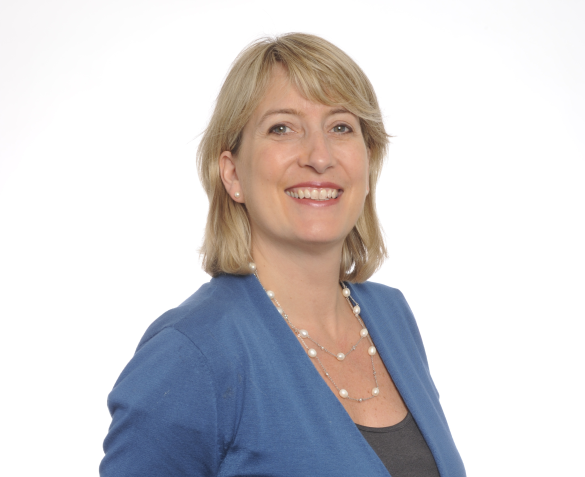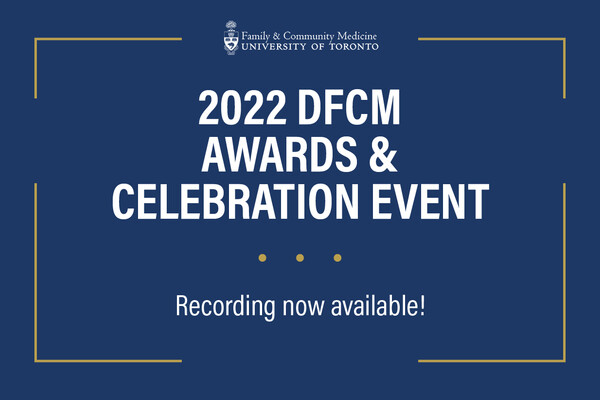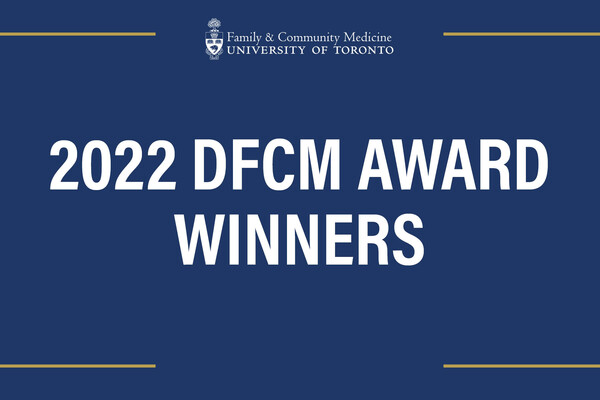Perspective on Alma-Ata’s Legacy and Steps Forward for Family Care Around the World

September is the anniversary of the Alma-Ata declaration, a defining moment which urged all governments and health professionals to protect and promote the health of all peoples.
“Health for All”, the motto which spearheaded the declaration was a vision which would ensure basic health for all by promoting health, human dignity and enhancing quality of life. It has been 39 years since the declaration was signed and Dr. Katherine Rouleau, Director of Global Health Programs at the University of Toronto Department of Family and Community Medicine, believes that while there is still much work to be done, primary health care is increasingly recognized as an essential component in all healthcare systems.
“The Alma-Ata declaration did wonders to add momentum to primary health care in areas of the world which needed it the most,” says Dr. Rouleau. “The declaration also expanded the number of actors who were to play a critical role in healthcare planning and delivery. There was a concerted effort to take the notion of health and illness away from the exclusive domain of doctors, make it more population anchored and recognize the roles of other health professionals.”
Dr. Rouleau acknowledges that the road to the “Health For All” vision had taken several detours. Some influential voices questioned the feasibility of delivering true and comprehensive primary health care. Others advocated for what Dr. Rouleau calls “selective primary health care” which focused on a smaller number of interventions on narrower populations.

Dr. Rouleau co-authored a Besrour paper titled Family Medicine Around the World: Overview by Region that highlights the promising developments in family medicine around the world. The report begins in the developed world in regions such as North America, Western Europe and Oceania. In North America and Australia, for example, the report notes that family medicine training is increasingly decentralized as more jurisdictions understand the need for training and retaining physicians in rural areas, a phenomenon that is noticeable within the spread of DFCM’s training sites. Family doctors in Canada are striving to develop a robust system which supports multidisciplinary teams as it is pivotal for its healthcare sector. The same trend is often difficult to observe in other parts of the world, but Dr. Rouleau believes that there are areas that are showing promise. In Latin America, she says and the study ascertains, countries like Brazil and Cuba have made a concerted effort to provide care for all through the support of multidisciplinary primary care teams.
“Every person in Brazil has a medical home and is followed by a team comprised of a physician, a community health worker and a nurse. Every month or so, community health workers visit the households they were assigned and monitor the health of the community. Brazil provides primary care that is deeply embedded into the community by using community workers from the community they serve. Those primary care providers in family health teams have a better grasp of the population they serve than we do.”
The University of Toronto, specifically DFCM, has been collaborating with their Brazilian family medicine colleagues in Sao Paolo and Rio. The goal is for this collaboration to expand access to robust and quality family medicine in Brazil and Canada.
Primary care training and delivery has grown in countries like Nigeria, Kenya and South Africa but remains a challenge for many African countries particularly in the former French colonies. Trends, however, are shifting for the better. French-speaking African countries have sought partnerships and collaborations with medical institutions in Quebec and around the world to develop family medicine further. Some of these partnerships are ongoing and show promise, Dr. Rouleau claims. Similarly, medical schools in the Middle East and Northern Africa region are beginning to train family physicians. DFCM is currently in collaboration and knowledge-sharing with its African counterparts in Ethiopia through the Toronto Addis Ababa Academic Collaboration. Two members of DFCM have recently returned from Addis Ababa University after providing support to the young faculty of its newly-established family medicine training program.
“There is more. The Global Health Program has worked ardently at facilitating these partnerships. Our Toronto International Program for Family Medicine (TIP) program brings emerging family medicine leaders together, for a two-week period to learn from each other. Within this network, participants get to share ideas and collaborate. It seems to be a program that is well-received among our attendees. Africa, much like every continent, is in capacity building mode and they are keen on moving things forward.”
In Asia, specifically China, the University of Toronto is currently working with educational institutions to ensure they strengthen continuing professional development in family medicine. In fact, DFCM has participated in the official opening of the general practice ward at the Longhua Hospital in Shenzhen, China. Other parts of Asia like Bhutan, Vietnam and Indonesia have all begun developing their family medicine practice models and postgraduate training of family doctors, and DFCM has been involved in supporting these developments. The Balkans have progressed steadily as well but have been taken under the European wing for family medicine. Many countries in the Caucasus have had a hard time pulling away from the “Polyclinics”-types of institutions, but they are also showing much promise through community engagement, she states. Dr. Rouleau believes every area of the world has a bright future but she is cautious of the many challenges that remain.

At the official opening of the GP department of Longhua Hospital in Shenzhen China @UofTFamilyMed @PhamTia pic.twitter.com/rXGEeKJnlT
— Cecil Canteenwalla (@CanteenwallaC) September 13, 2017
While family medicine’s foundational pillars are firm in countries like Canada where 50 per cent of its physicians specialize in family medicine, in many parts of the world family medicine is still perceived a “less-accomplished” speciality. Also, family medicine’s definition across the globe is different. There is no standard definition of the scope of comprehensive family medicine: Even the term family medicine is not universal. In some parts of the world, a physician specializing in family medicine may be called a general practitioner (GP). At times, these GPs are stretched, performing many other tasks that would not be required for family physicians in Canada.
“Family physicians in Ethiopia, for example, can be responsible for large catchment areas of up to a million people. How can you compare Ethiopian family medicine (which is three years old) to South African family medicine which has been practiced for decades? How can you compare Cuban to Peruvian family medicine? The training and scope of practice vary so much across all systems.”
For family medicine to flourish, Dr. Rouleau suggests that policymakers need to know what family medicine truly means now and for the future. They need to define what role well-trained generalists or family physicians will play as new models of care begin to emerge. She also hopes that some jurisdictions around the world, like in those where family medicine is well established, begin to see family physicians as coordinators and enablers within the health care system, the enablers for the motto: “Health for All.”
Over the years, family physicians have been engaged in preventative medicine, in bridging care between specialists and patients and in addressing both acute and chronic diseases. Integrated, person-centred care is the way of the future Dr. Rouleau ascertains, and she remarks that there is real momentum towards this notion of health for all through multidisciplinary teams which engage all types of medical actors, the person or patient being at the centre.
“Yet, there’s still no universal definition of the role of comprehensive family medicine but this is what is exciting for DFCM. Canada is a leader in family medicine training. This department is a hub for family medicine educators and innovators. We have many physicians who have worked on making our system better for a very long time. We recognize the shortcomings of our system, but we are actively looking for ways to improve in its delivery. We are called to continue to do some great things through family medicine, not only in our region but also in the world.”
Related Items
News


